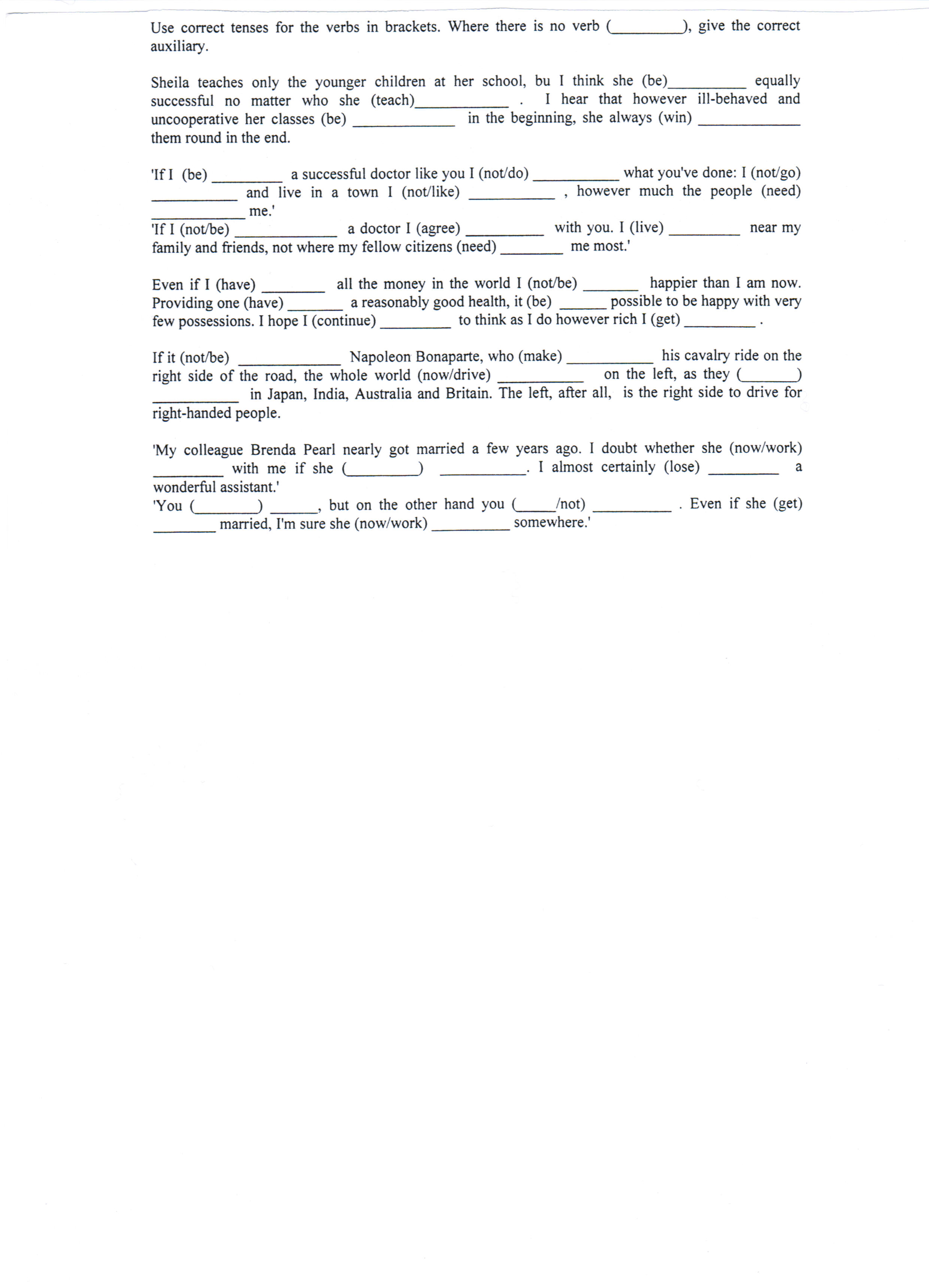gramatyka HW na 3 11 2010

Use correct tenses for the verbs in brackets. Where there is no verb (_), give the correct
auxiliary.
Sheila teaches only the younger children at her school, bu I think she (be)_ eąually
successfiil no matter who she (teach)_ . I hear that however ill-behaved and
uncooperative her classes (be)_ in the beginning, she always (win)_
them round in the end.
'If I (be)_ a successful doctor like you I (not/do)_what you've done: I (not/go)
_ and live in a town I (not/like) _ , however much the people (need)
_me.'
'If I (not/be)_ a doctor I (agree)_ with you. I (live)_ near my
family and ffiends, not where my fellow citizens (need)_ me most.'
Even if I (have)_ all the money in the world I (not/be)_ happier than I am now.
Providing one (have)_ a reasonably good health, it (be) _possible to be happy with very
few possessions. I hope I (continue)_ to think as I do however rich I (get)_.
If it (not/be) _ Napoleon Bonaparte, who (make)_ his cavalry ride on the
right side of the road, the whole world (now/drive)_ on the left, as they (_)
_ in Japan, India, Australia and Britain. The left, after all, is the right side to drive for
right-handed people.
'My colleague Brenda Pearl nearly got married a few years ago. I doubt whether she (now/work)
_ with me if she ( ) _. I almost certainly (lose) _ a
wonderful assistant.'
'You (_) _, but on the other hand you (_/not)_ . Even if she (get)
_married, I'm surę she (now/work)_somewhere.'
Wyszukiwarka